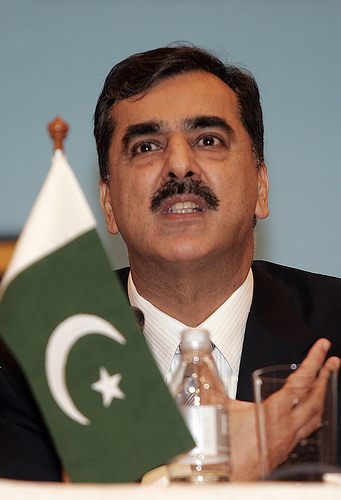
It is said in the Holy Bible: – “The Lord works in mysterious ways.” The President of Pakistan on 19th April, 2010 signed the Eighteenth Amendment Bill which consists of an amazing 102 changes in the country’s constitution. The task of the Constitutional Committee represented all political parties and headed by Raza Rabbani is thus complete. Pakistan is now a parliamentary State in which power holders and stakeholders are the country’s parliamentarians. This revolution is not similar to the English Civil Wars in which Oliver Cromwell who later became Lord Protector of England became a regicide by executing King Charles I and restoring parliament by making it supreme by abolishing monarchy in England. This experiment was not long lasting, as history is witness that England could not live without its monarchy. An England with a supreme parliament came full circle and realized that monarchy was “essential” for England and that England simply could not function without it. Coercive power is never liked yet it is essential, and this essential power that decides and shapes history. Every party was a part of the Constitutional Committee and there was a piece in the pie for everyone. Not to mention that Mian Nawaz Sharif can run for Prime Minister for the third time.
Prime Minister Syed Yousuf Raza Gilani is now the “Man-In charge” and he said on Friday that the amendment in the constitution has determined the responsibilities of institutions and paved way for provincial autonomy. The Constitution is a piece of paper at the end of day; it is what the parliamentarians do at the end of the day that matters.
A man who is in the line of fire nowadays is the former President of Pakistan Pervez Musharraf. He has become quite used to this position; recent one being that the UN report investigating former Prime Minister Benazir Bhutto’s assassination has fingered Musharraf as the person whose actions resulted in the former’s untimely death. This time is strange as Musharraf is planning to re-enter political life and the way things are going the man has been left with no choice. Musharraf tried to be a formidable leader, he tried to bring together bureaucracy, political leadership and the military in Pakistan, he tried to revive Pakistan’s dead economy so much so that his Prime Minister was Shaukat Aziz, a dynamic personality and banker, he tried to rid Pakistan of terrorism which is in a nuclear tension zone-in the process he came hard upon several parties. The result marred in the Lal Masjid massacre. He tried to reason with the judiciary and a former two-time Prime Minister. The result the judiciary revolted against the President and the Prime Minister who he reached a truce with through the NRO was executed. Benazir Bhutto had not even run the election when she started to play politician to an agreement she reached with the President of Pakistan. Her murder created a reaction against Musharraf and eventually the revolting and rebellious judiciary of Pakistan declared the NRO null and void putting the present government in a troubled predicament. Musharraf tried to reason with the US, Europe, China and India and created good private and public relations. One person Musharraf could never reason with was Mian Muhammad Nawaz Sharif, also a two-time Prime Minister. He once called him after a speech in Seattle: “A person who I call a closet Taliban. I feel he’ll be a bigger disaster. And also, he has a tendency of can’t function with anyone.”
This is a prophetic statement as Mian Sahib no matter how wise and smart; it is his inability to get along or look out of the box especially when his power and position is at stake that has become his unbecoming. We are now looking at a Pakistan in limbo because nothing is certain. The present situation can be diverted by one bolt of coercive force and the entire scenery of Pakistan can be changed. The Army is in its barracks but what no one can deny is that it is the only formidable institution in the State and has more coercive power than any other institution. It has taken an oath to protect and preserve the nation and its honour, and if that is at stake the Armed Forces will intervene without delay.
The situation in Pakistan is that the State is in economic ruin, terrorism is unmanageable, there is no source of income and the country is running on debt and international aid. People do not have the basic necessities of life and the poor are suffering more than ever. The youth is idle and mostly unemployed and the farmer is in crisis. After flour, sugar, power, water has become a rarity in Pakistan. This situation is escalating and there is no sign of diffusion.
If the eighteenth amendment is analyzed with respect to its stakeholders, then it is a very self-serving amendment. There are a lot of vested interests involved. This is a dangerous trend but politicians have resorted to such measures to increase their share of coercive power in the State. If one studies theodicy, then the basic lesson is that for something very good to happen something very bad has to happen first. After what Pakistan experienced after 9/11, Benazir’s assassination and Musharraf’s resignation, Pakistanis felt that they had seen the worst. After the People’s Party has come into power, people have started making comparisons. No one has clean hands in this situation. If the situation becomes worse and unmanageable, then a rapid change to restore and cleanse and account will come upon. A change like this always comes with a price and sacrifice. Let us hope for the betterment of democracy in this country that these very engaged politicians will glance upon the plight of this nation.



